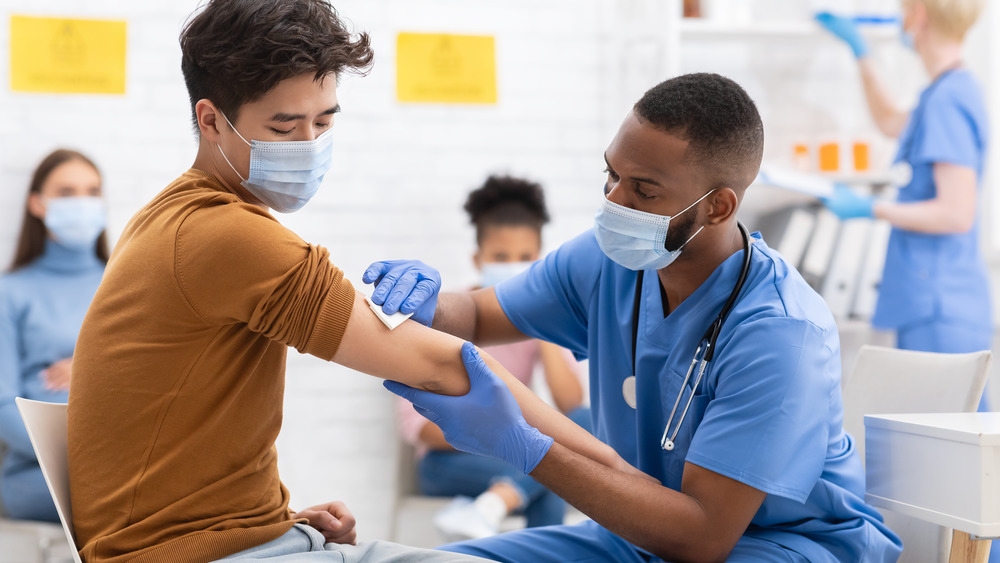The Real Reason COVID-19 Vaccines May Require Two Shots
The two potential COVID-19 vaccines that Moderna and the team of Pfizer and BioNTech have developed each will require two doses. But that's not unusual, say infectious disease specialists. Rather, it's how a vaccine becomes most effective (via The Verge).
When your body is exposed to a pathogen, or a disease-causing organism, your immune system rises to your defense, explains the World Health Organization. Those defenses include antibodies that your immune system specifically produces to recognize and attack this particular pathogen. Even after the pathogen is defeated, your body retains a memory of the needed antibodies so that your immune system can protect you swiftly from the same pathogen in the future.
A vaccine works by exposing your body to a weakened or inactive part of a particular pathogen to trigger this immune response, the WHO says. Receiving more than one dose of a vaccine gives the immune system more time to figure out how to fight the infection, which then causes a faster response, says Otto Yang, an infectious disease specialist at UCLA Health.
"When you're first getting exposed to something, the immune system is actually starting from scratch," Yang told The Verge. The immune system's memory of how to fight various infections fades over time, which is why immunizations against infections such as diphtheria and tetanus require booster shots. They "basically wake up the [immune] response as opposed to making a new response."
Two initial doses are standard for most vaccines
Multiple doses of a vaccine at the outset are fairly standard, Yang adds: "If you look at all the FDA approved vaccines, the vast majority will require multiple doses." According to a new Gallup poll, 58 percent of Americans say they would get vaccinated against the coronavirus if there was a no-cost vaccine available that the Food and Drug Administration had approved (via CNN).
Both Moderna and the Pfizer/BioNTech teams say that their vaccines have shown to be about 95 percent effective in clinical trials with no major safety concerns. Pfizer, which is based in New York City, has applied to the FDA for emergency authorization to use the vaccine. However, the Pfizer vaccine needs to be distributed in extreme cold, causing an uptick in sales of dry ice and medical-grade freezers.
Requiring two doses of the vaccine poses other logistical concerns, such as acquiring, storing, and distributing needles, vials, and the vaccine itself, The Verge notes. People interested in obtaining the vaccine also would need to arrange for two separate shots: traveling to a vaccination site, taking time off from work, or arranging for child care.
The coronavirus has killed more than 250,000 people nationwide this year and infected more than 12 million, according to Johns Hopkins University of Medicine, which is tracking cases worldwide. Currently, 11 vaccines are in late-stage trials, including four in the United States, The New York Times has said.


